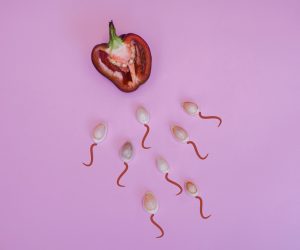Over the recent years, acupuncture has become increasingly popular as a way to improve the chances of natural conception, increase the effectiveness of medical fertility procedures, decrease the risk of miscarriage, and help women through the pregnancy.
Medical Tests
Besides assessing outward signs and symptoms, laboratory testing is always recommended, and results are also helpful to the acupuncturist. Blood tests to establish the hormone levels at various times of the cycle give information about any hormone imbalance that may be present. Ultrasounds scanning will show fibroids, uterine abnormalities or polycystic ovaries and a laparoscopy will reveal if there are any blocked fallopian tubes.
Stress and Lifestyle
When looking at fertility, there are a number of factors to consider, apart from the basic hormone levels and sperm tests that can be done by your doctor. Helpful as they are, they fail to take into account a number of factors to consider.
Indeed, environmental and nutritional factors have a direct impact on fertility and unhealthy habits such as smoking and excessive alcohol consumption are an additional risk. Another factor that is too often disregarded is one’s emotional state. We often forget to take into account how much stress or emotional upsets can affect our physiology, but especially when it comes to cases of “unexplained infertility”, factors such as one’s lifestyle, energy levels, stress levels and emotional state can help explain why getting pregnant is proving difficult.
Effect of Stress on Fertility
Recent research (*) tells us that stress stimulates the release of like cortisol, which in turn inhibits gonadotropin-inhibitory (GnIH) hormones that hold back the release of gonadotropin-releasing (GnRH) or sex hormones. GnRH is responsible for the release of Luteinizing hormones and follicle-stimulating hormones by the pituityary, the suppression of testosterone, estrogens, and sexual behaviour. As a result a deficiency of GnRH can impact ovulation, libido and sperm count.
(*)“Stress increases putative gonadotropin inhibitory hormone and decreases luteinizing hormone in male rats” – Elizabeth Kirby – Proceedings of the National Academy of Sciences – 18 May 2009
What acupuncture can do
Classical acupuncture is used to affect the whole person rather than a disease and has of course, traditionally been successfully employed in China to treat most illnesses, including regulating hormones or improving sperm quality and count. In addition, in recent years, there have been several interesting controlled scientific studies demonstrating the clinical value of acupuncture to treat female infertility due to hormone disorders.
One situation where the acupuncturist’s diagnosis can help make sense of the Western Medicine diagnosis is when one has been diagnosed with “unexplained infertility”, a very frustrating diagnosis to have as basically that means there is nothing wrong physically. From a Classical Chinese Medicine perspective however, there may well be other signs and symptoms of imbalance in the person, which although not typically linked in the West to fertility, are signs that the person is not functioning at their optimum and feeling as good and healthy as possible.
Treating the person as a whole and making them feel better, healthier, more energetic will often go hand in hand with better fertility. Indeed, if the metabolism is struggling to keep the person awake (if one sleeps too little or is too stressed), or the digestion functioning, or fighting chronic pain, that can mean that for a reason or another fertilization is not happening or a pregnancy is not successful. If the body (terrain) is not strong enough, an embryo will struggle more to implant and develop healthily.
Because acupuncture is holistic and the prime aim is to rebalance the flow of energy in the person as a whole, the benefits of treatment can go beyond the specific desired result of pregnancy. Although the acupuncture practitioner does not lose sight of the chief complaint a person is presenting with, e.g. infertility, the condition is resolved by addressing the root cause of the problem, in the context of a person’s unique system. In this way general health is improved, and natural fertility can often be achieved without side effects.




